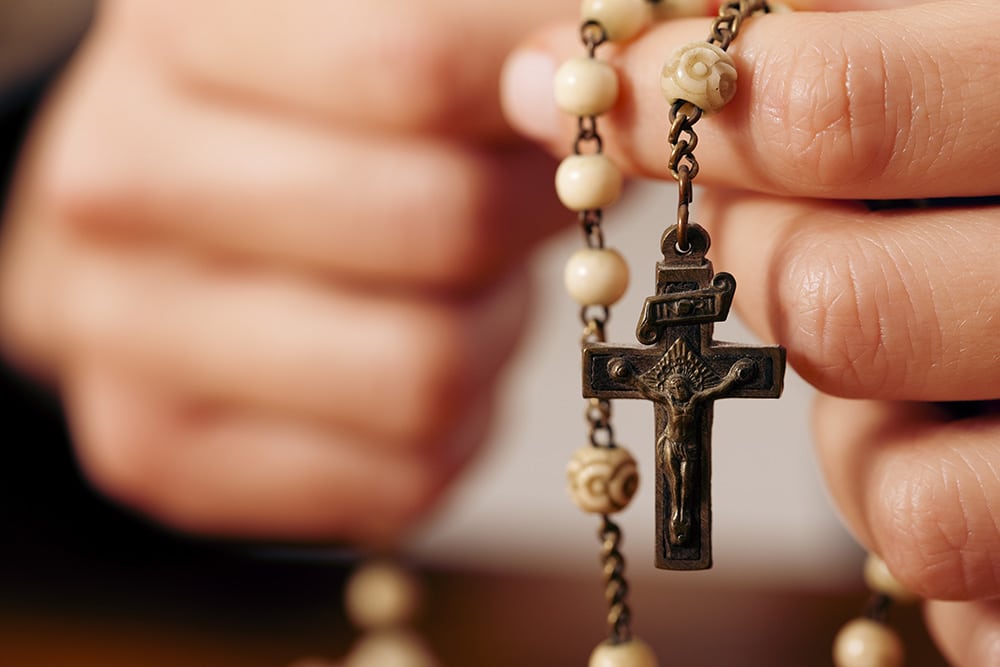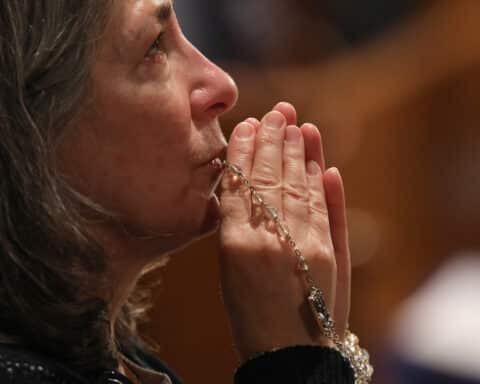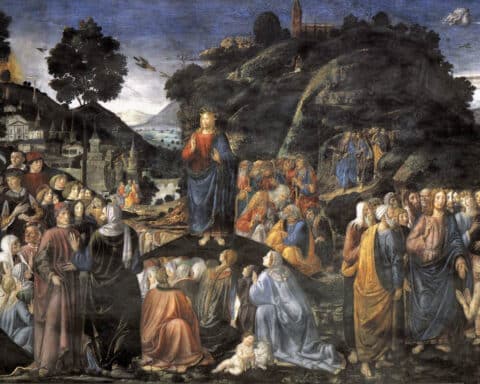
— Anthony Navarra, via email
Answer: In modern English the word “mystery” tends to mean something that is unknown and therefore must be brought to light or solved. But in the more ancient Christian sense, the word “mystery” speaks to something that is seen but much more of which lies hidden. A classic definition says that mystery is that which opens an event and gives it depth. It also opens a vertical dimension in it, which makes it a time of revelation or unveiling.
To understand this, think of the following example. A husband and wife walk into a gathering and hug each other very warmly and tenderly. Now you might say, “Big deal, married couples do things like that.” But then I tell you that they have been legally separated for years and now they are thinking of getting back together. So, there is a depth to that moment in time that goes beyond what the eyes can see. There is also a vertical dimension to the moment for people of faith who, seeing the warm embrace can say, “Look what God can do!”
This is what we mean then by the word “mystery” and what is meant when we speak of the mysteries of the Rosary. The mysteries of the Rosary do not refer merely to events in time that are known to us, but also to the depths of their meaning and the vertical dimension of what God is doing in and through those events. For example, the Presentation in the Temple manifests the return of God’s presence to the Temple and Mary as the Ark of the New Covenant, among many other things.
Power to forgive
Question: Why are priests the only ones who have the authority and power to forgive sins? Didn’t the Bible say we should confess our sins to one another (not to priests per se), and therefore even the lay faithful have authority and power to forgive sins?
— Name withheld, via email
Answer: You are referencing the verse “Therefore, confess your sins one to another” (Jas 5:16) But you are quoting it out of context, which does, in fact, have the verse refer to the priests, not simply to anyone in general. Here is the fuller quote: “Is anyone among you sick? He should summon the presbyters of the church, and they should pray over him and anoint [him] with oil in the name of the Lord, and the prayer of faith will save the sick person, and the Lord will raise him up. If he has committed any sins, he will be forgiven. Therefore, confess your sins to one another and pray for one another, that you may be healed. The fervent prayer of a righteous person is very powerful (Jas 5:14-16). Thus in this passage the confession or declaration of sins is in the context of the calling of the presbyters, meaning the priests. The word “therefore” connects what follows to what has preceded. Some translations say “elders” rather than priests. But the Greek word presbyteros as used in the New Testament refers to an office rather than to chronological age. The English word “priest” is just a mispronunciation of presbyteros.
The other reason that the Church reserves the absolving of sins to priests is that when Christ conferred this power, he did so only to the apostles, not to the disciples in general. This took place on the evening of Easter Sunday when he appeared to them in Jerusalem: “[Jesus] said to them again, ‘Peace be with you. As the Father has sent me, so I send you.’ And when he had said this, he breathed on them and said to them, ‘Receive the holy Spirit. Whose sins you forgive are forgiven them, and whose sins you retain are retained'” (Jn 20:21-23). The following verse notes the absence of Thomas from that gathering of “the Twelve” (which is a generic way of indicating the Apostles), so the power to absolve sin was given to the Apostles, who were the first priests, and not to the disciples in general. Hence the Church reserves the celebration of the Sacrament of Confession to priests based on texts like these and also our constant practice going back to apostolic times.
Msgr. Charles Pope is the pastor of Holy Comforter-St. Cyprian in Washington, D.C., and writes for the Archdiocese of Washington, D.C. at blog.adw.org. Send questions to msgrpope@osv.com.





